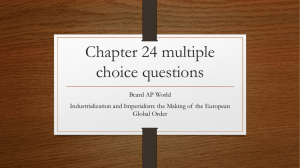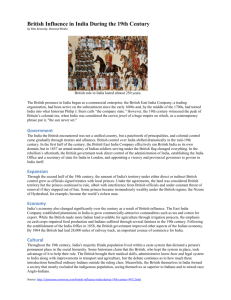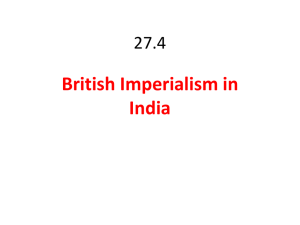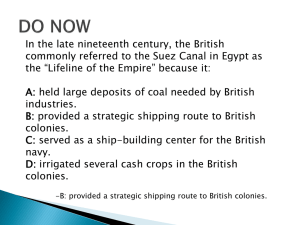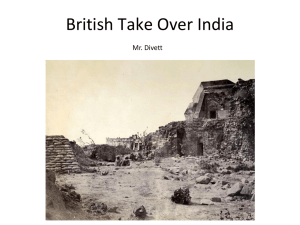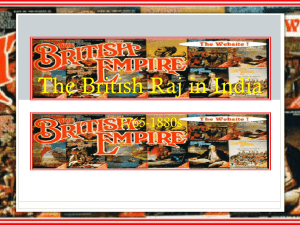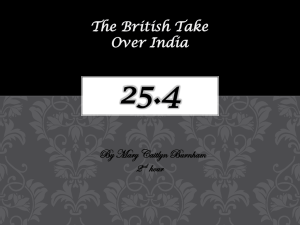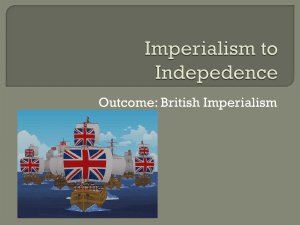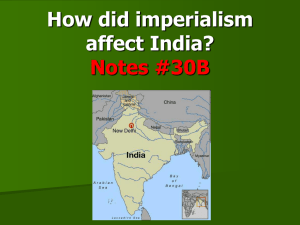The British Empire in the 19th century
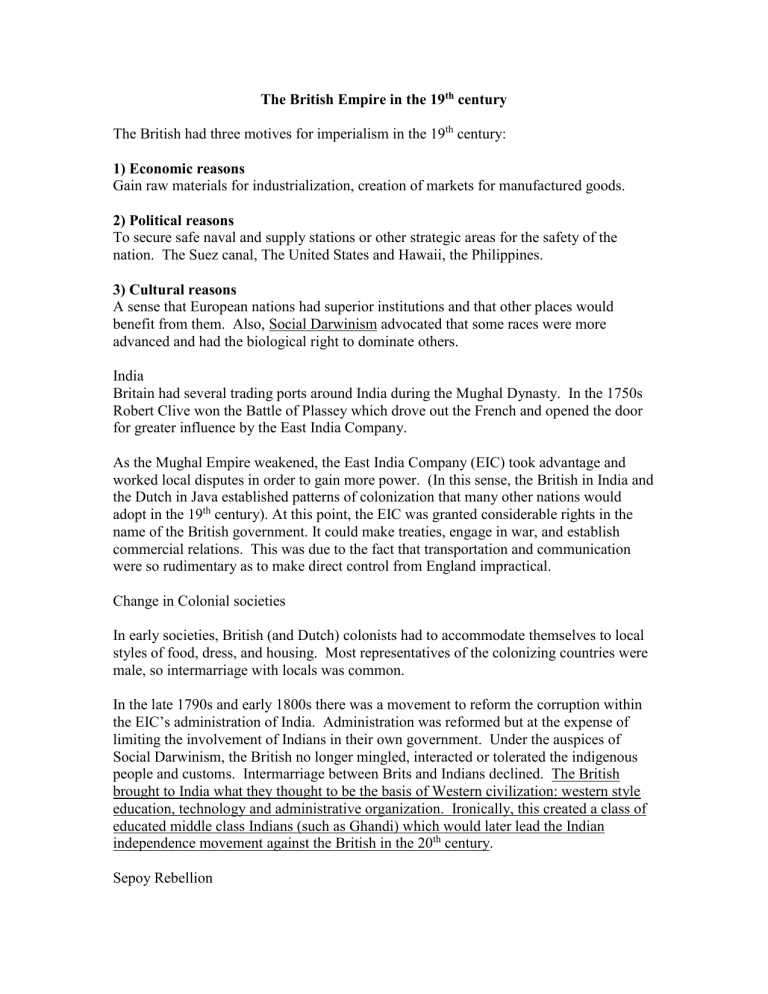
The British Empire in the 19 th century
The British had three motives for imperialism in the 19 th century:
1) Economic reasons
Gain raw materials for industrialization, creation of markets for manufactured goods.
2) Political reasons
To secure safe naval and supply stations or other strategic areas for the safety of the nation. The Suez canal, The United States and Hawaii, the Philippines.
3) Cultural reasons
A sense that European nations had superior institutions and that other places would benefit from them. Also, Social Darwinism advocated that some races were more advanced and had the biological right to dominate others.
India
Britain had several trading ports around India during the Mughal Dynasty. In the 1750s
Robert Clive won the Battle of Plassey which drove out the French and opened the door for greater influence by the East India Company.
As the Mughal Empire weakened, the East India Company (EIC) took advantage and worked local disputes in order to gain more power. (In this sense, the British in India and the Dutch in Java established patterns of colonization that many other nations would adopt in the 19 th
century). At this point, the EIC was granted considerable rights in the name of the British government. It could make treaties, engage in war, and establish commercial relations. This was due to the fact that transportation and communication were so rudimentary as to make direct control from England impractical.
Change in Colonial societies
In early societies, British (and Dutch) colonists had to accommodate themselves to local styles of food, dress, and housing. Most representatives of the colonizing countries were male, so intermarriage with locals was common.
In the late 1790s and early 1800s there was a movement to reform the corruption within the EIC’s administration of India. Administration was reformed but at the expense of limiting the involvement of Indians in their own government. Under the auspices of
Social Darwinism, the British no longer mingled, interacted or tolerated the indigenous people and customs. Intermarriage between Brits and Indians declined. The British brought to India what they thought to be the basis of Western civilization: western style education, technology and administrative organization. Ironically, this created a class of educated middle class Indians (such as Ghandi) which would later lead the Indian independence movement against the British in the 20 th
century.
Sepoy Rebellion
The EIC employed Indian troops known as sepoys (both Hindu and Muslim) to help them rule. The Sepoys rebelled in 1857 and began to slaughter British people. Queen
Elizabeth ordered India to fall under direct control of the British crown.
Colonial rule transformed India. Its economy was designed around the production and export of tea, coffee and opium. Modern railroads and telegraphs connected diverse regions. Education spread the English language. In the late 19 th century new attitudes toward other races brought changes in colonial societies. Theories of racism led the
English to assume their race was superior. Hindu practices were banned (sati).
Europeans began to isolate themselves from indigenous people. As laws forbidding interracial marriages were passed, women were brought to India and British families became insulated from Indian culture. However, British education nurtured the growth of an Indian middle class with a common culture.
South Africa
The Dutch East India Company had established a presence in South Africa since 1652
(Cape Town). As more settlers came over the years, the white settlers (called Boers or
Afrikaners ) pushed further inland, taking land from the indigenous people. Some ethnic groups, such as the Khoikhoi, were wiped out by warfare, epidemics, and smallpox.
The British took over the Cape during the Napoleonic Wars and British rule and law was imposed. After slavery was outlawed, the Afrikaner economy declined and many whites began the Great Trek eastward, bringing serious conflict with the Zulu and Ndebele tribes. In the mid 19tn century these pioneers created several independent republics loosely supervised by the British government.
Things changed in the latter half of the 19 th
century when the world’s largest gold and diamond deposits were discovered in South Africa. Miners and prospectors flooded to
South Africa and the Boer War (or South African War) began. The British won this war, but established peace with the Afrikaners with a settlement that ensured the privileges of the white colonists over the indigenous blacks. The racial tensions continue to today.

